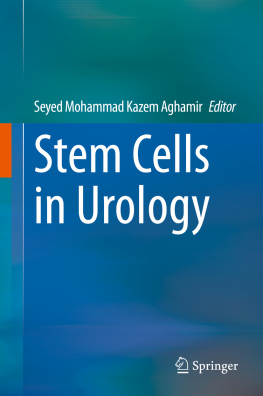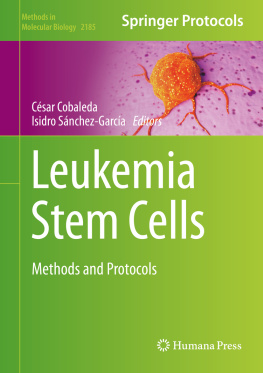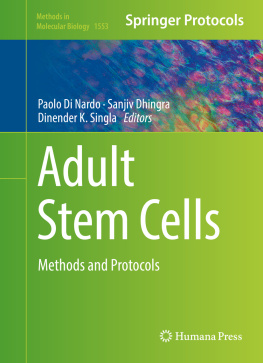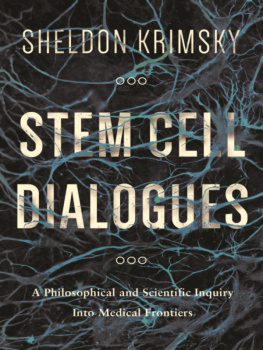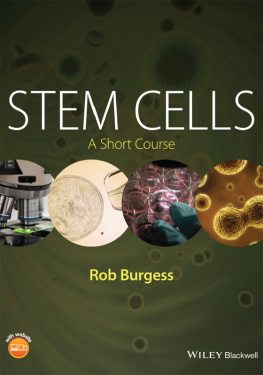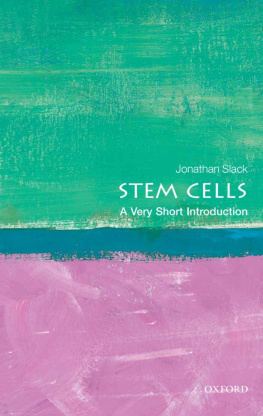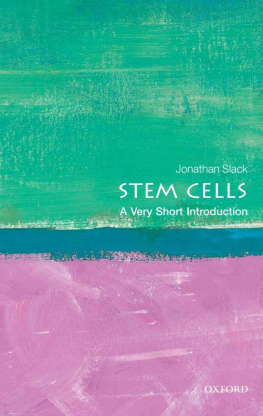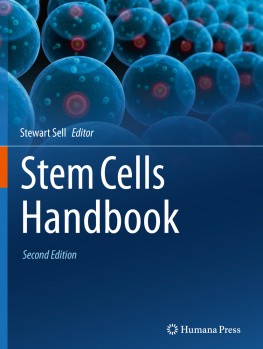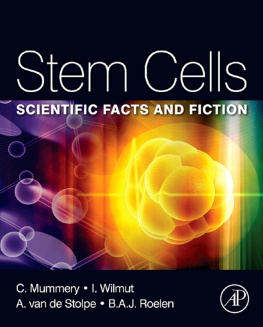Seyed Mohammad Kazem Aghamir - Stem Cells in Urology
Here you can read online Seyed Mohammad Kazem Aghamir - Stem Cells in Urology full text of the book (entire story) in english for free. Download pdf and epub, get meaning, cover and reviews about this ebook. year: 2020, publisher: Springer International Publishing, genre: Home and family. Description of the work, (preface) as well as reviews are available. Best literature library LitArk.com created for fans of good reading and offers a wide selection of genres:
Romance novel
Science fiction
Adventure
Detective
Science
History
Home and family
Prose
Art
Politics
Computer
Non-fiction
Religion
Business
Children
Humor
Choose a favorite category and find really read worthwhile books. Enjoy immersion in the world of imagination, feel the emotions of the characters or learn something new for yourself, make an fascinating discovery.
- Book:Stem Cells in Urology
- Author:
- Publisher:Springer International Publishing
- Genre:
- Year:2020
- Rating:4 / 5
- Favourites:Add to favourites
- Your mark:
- 80
- 1
- 2
- 3
- 4
- 5
Stem Cells in Urology: summary, description and annotation
We offer to read an annotation, description, summary or preface (depends on what the author of the book "Stem Cells in Urology" wrote himself). If you haven't found the necessary information about the book — write in the comments, we will try to find it.
Stem Cells in Urology — read online for free the complete book (whole text) full work
Below is the text of the book, divided by pages. System saving the place of the last page read, allows you to conveniently read the book "Stem Cells in Urology" online for free, without having to search again every time where you left off. Put a bookmark, and you can go to the page where you finished reading at any time.
Font size:
Interval:
Bookmark:
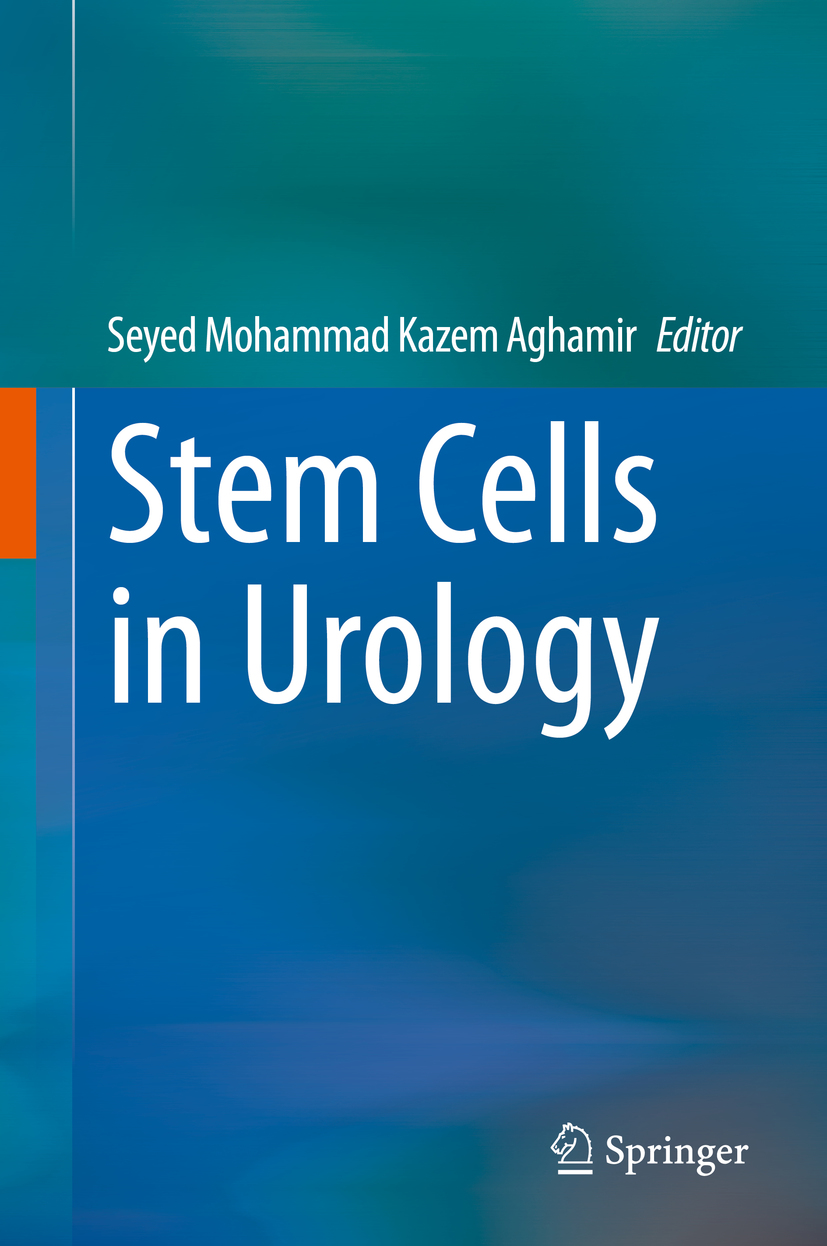

This Springer imprint is published by the registered company Springer Nature Switzerland AG.
The registered company address is: Gewerbestrasse 11, 6330 Cham, Switzerland
Mesenchymal stromal cells (MSCs) are the type of cells with self-renewal and multi-lineage differentiation potentical and are placed especially in bone marrow. The ability of MSCs to differentiate into mesoderm, ectodermal, and endodermal cells in vitro, make them as a choice for tissue engineering and several disease treatment including urology disorders. On the occasion of renal tubular injury, MSCs not only prevent fibrosis of renal tissue and prohibit apoptosis of renal cells, but have a virtual role in regeneration of renal tubular cells indirectly. Several role for MSCs in the erectile dysfunction, bladder dysfunction, kidney injuries and regenerative medicine in urology are considered. In this book we represent the exact place of stem cells in urology disorders
Mesenchymal stromal cells (MSCs) with capacity of self-renewal and multi-lineage differentiation can be detected especially in bone marrow and also, it can be harvested through various tissues throughout the adult body including bone marrow, umbilical cord blood, adipose tissue, and peripheral blood [].
Cancer stem cells (CSCs) are known as subdivided of tumor cells that have ability to renewal themselves and differentiate heterogeneity []. Hence, larger studies are warranted to understanding CSC of bladder and renal cancer in order to advance new treatments.
Organoids, which are multi cell structures that can virtually mirror the entire aspects of an organ in vitro, has become one of the hottest topics in current tissue engineering research []. Albeit there have been evolutions regarding biomaterials applied for producing organoids and new approaches are going to substitute old approaches, each approach and biomaterial include both benefits and complications. With respect to organoids in urology, the majority of studies and research is belonged to animal studies and there is scarcity of clinical studies.
Regenerative medicine is a newfound field that dedicated to reconstruction and repair of tissues and organs [].
Erectile dysfunction (ED) is a prevailing problem that badly affect the quality of life of the men and their partners []. In spite of satisfactory outcomes regarding stem cell usage in patients with ED, need further human studies to bring it into practice.
A variety of problems such as overactive bladder, urgency, or urinary incontinence may account for Bladder dysfunction (BD), which involves huge quantity of people universally [].
Kidney impairment, which is described as health-threaten condition that last at least for 3 months [].
Induction therapy has great advantage in the normal process of organ transplantation by prohibiting initial immune response [].
- Mortazavi SM, Shekoohi-Shooli F, Aghamir SM, Mehrabani D, Dehghanian A, Zare S, Mosleh-Shirazi MA. The healing effect of bone marrow-derived stem cells in acute radiation syndrome. Pakistan J Med Sci. 2016 May;32(3):646.
- Dayem AA, Choi HY, Yang G-M, Kim K, Saha SK, Kim J-H, et al. The potential of nanoparticles in stem cell differentiation and further therapeutic applications. Biotechnol J [Internet]. [cited 2019 Dec 9]. 2016;11(12):155060. Available from: http://doi.wiley.com/10.1002/biot.201600453
Font size:
Interval:
Bookmark:
Similar books «Stem Cells in Urology»
Look at similar books to Stem Cells in Urology. We have selected literature similar in name and meaning in the hope of providing readers with more options to find new, interesting, not yet read works.
Discussion, reviews of the book Stem Cells in Urology and just readers' own opinions. Leave your comments, write what you think about the work, its meaning or the main characters. Specify what exactly you liked and what you didn't like, and why you think so.

